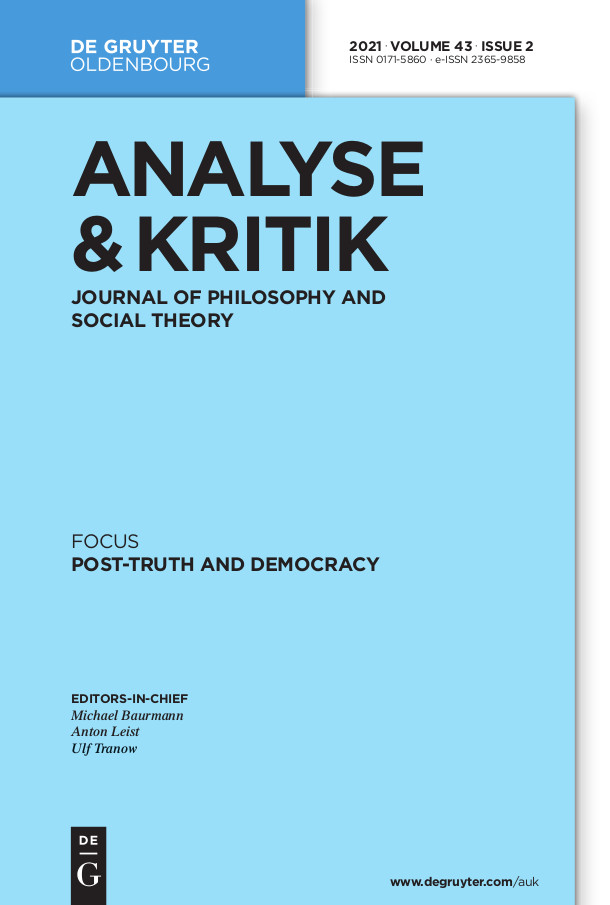Suchergebnisse
"William T. Lynch"
Titel: Behind the Screens: Post-truth, Populism, and the Circulation of Elites
Autor: William T. Lynch
Seite: 367-393
The alleged emergence of a ‘post-truth’ regime links the rise of new forms of social media and the reemergence of political populism. Post-truth has theoretical roots in the interdisciplinary field of Science and Technology Studies (STS), with sociologists of science arguing that both true and false claims should be explained by the same kinds of social causes. Most STS theorists have sought to deflect blame for post-truth, while at the same time enacting a normative turn, looking to deconstruct truth claims and subject expertise to criticism. Steve Fuller has developed a positive case for post-truth in science, arguing that post-truth democratizes science. I criticize this argument and suggest an alternative approach that draws on the prehistory of the field in the 1930s and 1940s, when philosophers and sociologists sought to define the social conditions necessary for reliable knowledge production that might stem mass media irrationalism.
Titel: Does Post-truth Expand or Restrict Political Choice? Politics, Planning, and Expertise in a Post-truth Environment
Autor: William T. Lynch
Seite: 137-159
Steve Fuller has replied to my critique of his endorsement of a post-truth epistemology. I trace the divergence in our approach to social epistemology by examining our distinct responses to the principle of symmetry in the sociology of scientific knowledge. Fuller has extended the concept of symmetry and challenged the field to embrace a post-truth condition that flattens the difference between experts and the public. By contrast, I have criticized the concept of symmetry for policing the field to rule ideology critique out of court. I argue that a focus on post-truth populism obscures the role of counter-elites and ideologies that restrict political choice. A better way to promote democracy would be to support minority positions within science that promise to open up suppressed political possibilities and to seek the coordinated use of different disciplines to address significant public problems.
Titel: Symmetry in World-Historic Perspective: Reply to Lynch
Autor: Steve Fuller
Seite: 161-169
William Lynch has persistently questioned the politics underlying my appeal to science and technology studies’ flagship symmetry principle. He believes that it licenses the worst features of the ‘post-truth condition’. I respond in two parts, the first facing the future and the second facing the past. In the first part, I argue that the symmetry principle will be crucial in decisions that society will increasingly need to make concerning the inclusion of animals and machines on grounds of sentience, consciousness, intelligence, etc. In the second part, I argue that the symmetry principle has been in fact at the core of the ‘justice as fairness’ idea that has been at the core of both liberal and socialist democracies. Difficulties start once the means of expression and communication are made widely available and the standards of fairness are subject to continual questioning and renegotiation.

Focus: Post-truth and Democracy
2021 (43) Heft 2
Editorial
The concept of ‘post-truth’ has existed for a while, but after the Oxford dictionary named it ‘word of the year’ in 2016, it has permeated public and academic debates. Since then, it has become synonymous with the populist threat to the liberal-democratic order. The concept points to the impression that we are entering an age of decay in which the achievements of modernity—objectivity, science, rationality, and democracy—are being gradually replaced by emotionality, agnotology, irrat...